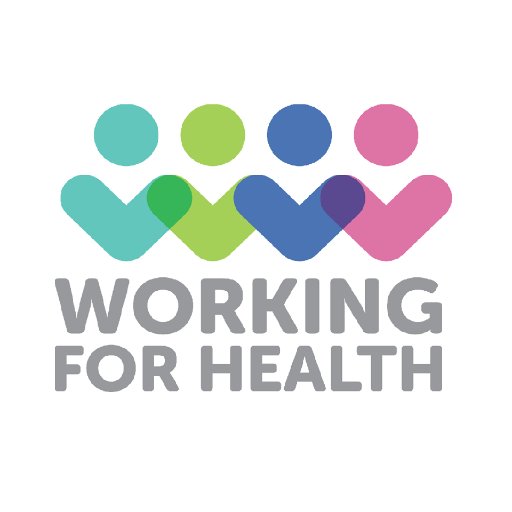By Natasha Jolob,
Advanced Social Value Practitioner & Director of Kai-zen Change for good CIC
The NHS has just launched a Social Impact Framework tender, with a deadline of 26 August 2025. It is ambitious: covering 23 lots across health and the wider determinants of wellbeing, from housing to employment. On paper, it looks like progress, a recognition that health outcomes are shaped by social conditions, not just clinical interventions.
The tender sits alongside a growing set of commitments:
- The NHS Fit for the Future Plan, emphasising prevention and tackling health inequalities.
- The NHS Social Value Playbook, providing guidance for embedding social value in commissioning.
- The UK Government’s Small Business Plan, which promises to open up public contracts to SMEs, charities, and social enterprises.
Together, these signal a strong policy intent: more collaboration, more community involvement, and a shift towards commissioning for outcomes rather than transactions. But will this intent translate into practice?
A familiar pattern
For those of us who have worked in commissioning and procurement for many years, the pattern is all too familiar. Despite new playbooks and frameworks, the reality for small charities and social enterprises has barely shifted in two decades.
Procurement remains complex, fragmented, and opaque. Tender portals are hard to navigate. Clarification processes use coded references that confuse rather than clarify. And organisations are often asked to invest huge amounts of time in preparing bids with no guarantee of success.
The playing field is also uneven. Large national providers, with professional bid-writing teams and direct links into policymakers, are well-placed to succeed. Small, values-led organisations, often the ones delivering the highest social value, are forced to divert precious staff time into applications they are unlikely to win.
Meanwhile, only around 1% of the NHS’s £188.5 billion budget currently flows to charities and social enterprises. That figure has barely changed in 20 years. For a sector that delivers so much of the frontline support in communities, it represents a serious structural imbalance.
Why it matters
The exclusion of smaller charities and social enterprises is not simply unfair; it is also inefficient. These organisations often:
- Provide trusted, grassroots support in communities hardest hit by health inequalities.
- Deliver holistic services, connecting health with housing, jobs, and wellbeing.
- Operate with agility and innovation, adapting quickly to local needs.
Their impact is precisely what the NHS needs if it is serious about prevention, integration, and reducing inequalities. Yet procurement systems continue to favour scale and compliance over trust and outcomes.
What needs to change
If the Social Impact Framework is to fulfil its promise, commissioners and procurement teams must shift both mindset and practice.
- Commission for outcomes, not activities.
Breaking services into multiple lots may make procurement appear neat, but it fragments provision and makes evaluation more difficult. A focus on outcomes would reduce transaction costs and ensure contracts are judged on the difference they make to people’s lives.
- Embed social value throughout the commissioning cycle.
Social value should not be a tick-box criterion at the end of procurement. It needs to inform planning, design, procurement, monitoring, and evaluation.
- Simplify and make processes proportionate.
Smaller contracts should have lighter application requirements. Guidance should be clear, timelines realistic, and processes transparent.
- Invest in co-production.
Commissioners should involve communities, service users, and frontline organisations from the outset. This is not only about fairness, it ensures services are designed around real needs.
- Value what matters.
Commissioning should recognise the broader contribution charities and social enterprises make: trust, prevention, and long-term impact, not just throughput or unit cost.
The risk of “Business as Usual”
Without these changes, this tender risks repeating the cycle we have seen for decades:
- Large nationals sweep up contracts.
- Small charities and CICs are locked out by bureaucracy.
- Commissioning remains transactional and fragmented.
- Policy rhetoric on social value does not match the reality on the ground.
If that happens, the Civil Society Covenant, the Social Value Playbook, and the Small Business Plan will amount to little more than fine words.
What small organisations can do now
For small charities and CICs considering this framework, there are some practical steps:
- Check with your Integrated Care Board whether it is participating before investing time.
- Work with your local CVS (Council for Voluntary Service) for support.
- Collaborate with peers – explore consortia or joint bids where one organisation takes the lead. Get organised!
- Raise the issue locally with MPs, councillors, and system leaders to highlight barriers.
These steps will not solve the systemic issues, but they may help individual organisations navigate the immediate challenge.
Conclusion
The NHS Social Impact Framework is a major opportunity. By recognising the wider determinants of health and opening procurement to a broad range of providers, it could be a genuine step forward. But unless the system shifts in practice, simplifying processes, commissioning for outcomes, and valuing what matters, it risks reinforcing old patterns.
The £188.5 billion NHS budget cannot afford to spend another 20 years excluding the very organisations that deliver the most social value. If the NHS wants to be truly “fit for the future,” procurement reform must be part of that journey.
👉 For a deeper analysis of the opportunities and challenges in NHS procurement, read my full Substack article here:



